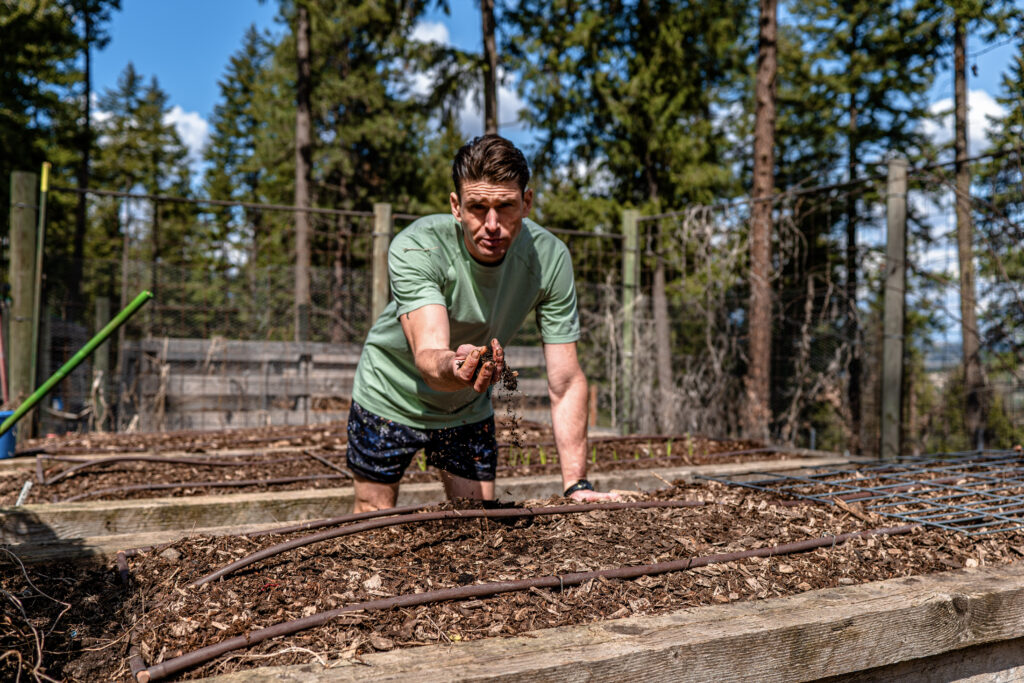May 9, 2021
I'm traveling this week, so today's article is a bit brief.
But I felt compelled to share with you a few of my favorite “sources” of wisdom and several of the more compelling collections of quotes that I've discovered of late.
These days (for about the past two months) I have returned to reading a book a day. I had paused that habit for nearly a year after desiring to experiment with reading vertically and deep vs. horizontally and shallow, thus adopting the alternative habit of reading one book slowly and “savoring each bite,” so to speak.
But turns out, I kinda like to read lots of books…even more than I like keeping my nose down in one single title for a couple of weeks. Anyways, in this article, I share with you most of the details of how I read a book a day. Three other resources that will fast-track you to learn my exact speed-reading methods are:
- The book “How to Read a Book: The Classic Guide to Intelligent Reading” (or, if you're short on time, you can read Derek Siver's excellent summary of the book here).
- Farnam Street's comprehensive article on “How To Read A Book” here.
- The Only Skill that Matters: The Proven Methodology to Read Faster, Remember More, and Become a SuperLearner by Jonathan Levi
I’m also often asked how I actually discover new books and simultaneously digest the large number of research articles and papers I read each day.
In most cases, I accomplish my hyperproductive digestion of information through the use of services, websites, journals, newsletters, and digests that disseminate information into readily accessible bite-sized pieces that allow me to cut through the clutter and quickly get to the main summaries, takeaways, and actionable items from all the content.
For example, I’m a huge fan of the book reviews produced by gentlemen such as Derek Sivers and James Clear.
In addition, I stay up-to-date with health, medical, and science news via searches on Sci-Hub (the URL for that website tends to constantly change, but it allows you to get full access to just about every scientific paper that exists). For one of the most comprehensive exercise, diet, supplement resources I have ever accessed, I am a frequent visitor to the website Examine and their monthly publication The Examine Research Digest.
Through my Feedly feed reader, which is synced across all my devices, I am a subscriber to the Farnham Street blog and the Sloww feed, and I've found these sites useful for staying current with the best recently published books and articles with general wisdom and useful, inspirational, or motivational content from around the web.
Another top recommended resource I use for getting through the books more quickly is the app/website called “Optimize” (you can click here and use code BEN to get access to Optimize for $10/month). The good folks at Optimize read every one of the best books (primarily focusing on health, wealth, self-improvement, neuroscience, fitness, business, nutrition, lifestyle, and philosophy) and then summarize these books in easy-to-digest, 20-minute audio MP3s or very short 5-6 page PDFs with the biggest ideas, summaries, and most important takeaways.
I've also found another comparable service that has quite similar features to Optimize in terms of book summaries that you can quickly read or listen to but which features an entirely different library than Optimize. It is called “Thinkr.” Thinkr summarizes the key ideas from new and noteworthy nonfiction books, allowing you to read or listen in about 10 minutes per title. I've noted that many of the titles on Thinkr are somewhat health-oriented and also relatively conservative or religious, but both those features are right up my own personal alley.
Finally, for audio digestion, I am of course a massive fan of Audible (usually I listen to books at 2.5-3.5x speed and sometimes sync to my Kindle to both read and listen to the book) but also use the PodcastNotes website for quick, concise, and incredibly helpful summaries of some of the best health, self-improvement, economic, business, and popular podcasts out there (you can use code BEN to save 10% on any of their premium membership options).
Next, there are certain books that I have found to be excellent sources of life's wisdom distilled into a quite concentrated but fun and entertaining format with very good practical takeaways.
The first, and most important is the book of Proverbs in the Bible, which I tell you how to best read here.
Proverbs is considered to be not merely an anthology but a “collection of collections” relating to a pattern of life which lasted for more than a millennium, including the wisdom of King Solomon—the wisest man who ever lived. Proverbs is an example of the biblical wisdom literature and addresses topics such as personal values, moral behavior, the meaning of human life, longevity, discipline, and right moral conduct. Its base theological foundation is that “the fear of God (meaning submission to and trust in the will of God) is the beginning of wisdom.”
Then there's Seeking Wisdom by Peter Blevelin. Peter begins this fascinating book with Confucius' great wisdom: “A man who has committed a mistake and doesn't correct it is committing another mistake.” Seeking Wisdom is the result of Bevelin's passion for learning about attaining wisdom. His quest for wisdom originated partly from making mistakes himself and observing those of others but also from the philosophy of super-investor and Berkshire Hathaway Vice Chairman Charles Munger (see below). In addition to naturalist Charles Darwin and Munger, Bevelin cites an encyclopedic range of thinkers: from first-century BCE Roman poet Publius Terentius to Mark Twain; from Albert Einstein to Richard Feynman; from 16th Century French essayist Michel de Montaigne to Berkshire Hathaway Chairman Warren Buffett. In Seeking Wisdom, Bevelin tackles such eternal questions as: Why do we behave like we do? What do we want out of life? What interferes with our goals? Read and study this wonderful multidisciplinary exploration of wisdom.
Next is Poor Charlie's Almanack: The Wit and Wisdom of Charles T Munger. Charlie Munger is an American billionaire investor, businessman, former real estate attorney, architectural designer, and philanthropist. He is vice chairman of Berkshire Hathaway, the conglomerate controlled by Warren Buffett, and Buffett has described Munger as his closest partner and right-hand man. Poor Charlie's Almanack contains Charlie's best talks, lectures, and public commentary, and has been written and compiled with both Charlie Munger and Warren Buffett's encouragement and cooperation. Packed with unique humor, wit, and insight that Charlie Munger brings to the world of business, investing, and life itself, this book is a wonderful exploration of better investment, decision-making, and thinking about the world and life in general. Charlie's unique worldview, what he calls a ‘multidisciplinary' approach, is a self-developed model for clear and simple thinking. Throughout the book, Charlie displays his intellect, wit, integrity, and rhetorical flair. Using his encyclopedic knowledge, he cites references from classical orators to eighteenth- and nineteenth-century European literature to pop culture and beyond.
Finally, for books, I recommend The Almanack of Naval Ravikant: A Guide to Wealth and Happiness. Naval Ravikant is an entrepreneur, philosopher, and investor who has captivated the world with his principles for building wealth and creating long-term happiness. The Almanack of Naval Ravikant is a collection of Naval’s wisdom and experience from the last ten years, shared as a curation of his most insightful interviews and poignant reflections. Through Naval’s own words, you will learn how to walk your own unique path toward a happier, wealthier life. For a sampling of the type of wisdom you'll find throughout this book, I recommend checking out Naval on Twitter. What does progress really look like?
And last, as promised, I have recently come across several fantastic collections of quotes that I'm going to share in their full glory below, with attribution to each author/website.
100 Tips For A Better Life
The first collection is “100 Tips For A Better Life,” from the website LessWrong, which contains a library of rationality writings, a community discussion forum, and an open questions research platform addressing a wide variety of topics.
Possessions
- If you want to find out about people’s opinions on a product, google <product> reddit. You’ll get real people arguing, as compared to the SEO’d Google results.
- Some banks charge you $20 a month for an account, others charge you 0. If you’re with one of the former, have a good explanation for what those $20 are buying.
- Things you use for a significant fraction of your life (bed: 1/3rd, office-chair: 1/4th) are worth investing in.
- “Where is the good knife?” If you’re looking for your good X, you have bad Xs. Throw those out.
- If your work is done on a computer, get a second monitor. Less time navigating between windows means more time for thinking.
- Establish clear rules about when to throw out old junk. Once clear rules are established, junk will probably cease to be a problem. This is because any rule would be superior to our implicit rules (“keep this broken stereo for five years in case I learn how to fix it”).
- Don’t buy CDs for people. They have Spotify. Buy them merch from a band they like instead. It’s more personal and the band gets more money.
- When buying things, time and money trade-off against each other. If you’re low on money, take more time to find deals. If you’re low on time, stop looking for great deals and just buy things quickly online.
Cooking
- Steeping minutes: Green at 3, black at 4, herbal at 5. Good tea is that simple!
- Food actually can be both cheap, healthy, tasty, and relatively quick to prepare. All it requires is a few hours one day to prepare many meals for the week.
- Cooking pollutes the air. Opening windows for a few minutes after cooking can dramatically improve air quality.
- Food taste can be made much more exciting through simple seasoning. It’s also an opportunity for expression. Buy a few herbs and spices and experiment away.
- When googling a recipe, precede it with ‘best.’ You’ll find better recipes.
Productivity
- Advanced search features are a fast way to create tighter search statements. For example: img html will return inferior results compared to: img html -w3
- You can automate mundane computer tasks with Autohotkey (or AppleScript). If you keep doing a sequence “so simple a computer can do it”, make the computer do it.
- Learn keyboard shortcuts. They’re easy to learn and you’ll get tasks done faster and easier.
- Done is better than perfect.
- Keep your desk and workspace bare. Treat every object as an imposition upon your attention, because it is. A workspace is not a place for storing things. It is a place for accomplishing things.
- Reward yourself after completing challenges, even badly.
Body
- The 20-20-20 rule: Every 20 minutes of screenwork, look at a spot 20 feet away for 20 seconds. This will reduce eye strain and is easy to remember (or program reminders for).
- Exercise (weightlifting) not only creates muscle mass, it also improves skeletal structure. Lift!
- Exercise is the most important lifestyle intervention you can do. Even the bare minimum (15 minutes a week) has a huge impact. Start small.
- (~This is not medical advice~). Don’t waste money on multivitamins, they don’t work. Vitamin D supplementation does seem to work, which is important because deficiency is common.
- Phones have gotten heavier in the last decade and they’re actually pretty hard on your wrists! Use a computer when it’s an alternative or try to at least prop up your phone.
Success
- History remembers those who got to market first. Getting your creation out into the world is more important than getting it perfect.
- Are you on the fence about breaking up or leaving your job? You should probably go ahead and do it. People, on average, end up happier when they take the plunge.
- Discipline is superior to motivation. The former can be trained, the latter is fleeting. You won’t be able to accomplish great things if you’re only relying on motivation.
- You can improve your communication skills with practice much more effectively than you can improve your intelligence with practice. If you’re not that smart but can communicate ideas clearly, you have a great advantage over everybody who can’t communicate clearly.
- You do not live in a video game. There are no pop-up warnings if you’re about to do something foolish, or if you’ve been going in the wrong direction for too long. You have to create your own warnings.
- If you listen to successful people talk about their methods, remember that all the people who used the same methods and failed did not make videos about it.
- The best advice is personal and comes from somebody who knows you well. Take broad-spectrum advice like this as needed, but the best way to get help is to ask honest friends who love you.
- Make accomplishing things as easy as possible. Find the easiest way to start exercising. Find the easiest way to start writing. People make things harder than they have to be and get frustrated when they can’t succeed. Try not to.
- Cultivate a reputation for being dependable. Good reputations are valuable because they’re rare (easily destroyed and hard to rebuild). You don’t have to brew the most amazing coffee if your customers know the coffee will always be hot.
- How you spend every day is how you spend your life.
Rationality
- Noticing biases in others is easy, noticing biases in yourself is hard. However, it has much higher pay-off.
- Explaining problems is good. Often in the process of laying out a problem, a solution will present itself.
- Foolish people are right about most things. Endeavour to not let the opinions of foolish people automatically discredit those opinions.
- You have a plan. A time-traveller from 2030 appears and tells you your plan failed. Which part of your plan do you think is the one that fails? Fix that part.
- If something surprises you again and again, stop being surprised.
- Should you freak out upon seeing your symptoms on the worst diseases on WebMD? Probably not! Look up the base rates for the disease and then apply Bayes’ Theorem.
- Selfish people should listen to advice to be more selfless, selfless people should listen to advice to be more selfish. This applies to many things. Whenever you receive advice, consider its opposite as well. You might be filtering out the advice you need most.
- Common systems and tools have been designed so everybody can handle them. So don’t worry that you’re the only one who can’t! You can figure out doing laundry, baking, and driving on a highway.
Self
- Deficiencies do not make you special. The older you get, the more your inability to cook will be a red flag for people.
- There is no interpersonal situation that can’t be improved by knowing more about your desires, goals, and structure. ‘Know thyself!’
- If you’re under 90, try things.
- Things that aren’t your fault can still be your responsibility.
- Defining yourself by your suffering is an effective way to keep suffering forever (ex. incels, trauma).
- Keep your identity small. “I’m not the kind of person who does things like that” is not an explanation, it’s a trap. It prevents nerds from working out and men from dancing.
- Don’t confuse ‘doing a thing because I like it’ with ‘doing a thing because I want to be seen as the sort of person who does such things.’
- Remember that you are dying.
- Events can hurt us, not just our perceptions of them. It’s good to build resilience, but sometimes it isn’t your fault if something really gets to you.
- If you want to become funny, try just saying stupid shit (in the right company!) until something sticks.
- To start defining your problems, say (out loud) “everything in my life is completely fine.” Notice what objections arise.
- Procrastination comes naturally, so apply it to bad things. “I want to hurt myself right now. I’ll do it in an hour.” “I want a smoke now, so in half an hour I’ll go have a smoke.” Then repeat. Much like our good plans fall apart while we delay them, so can our bad plans.
- Personal epiphanies feel great, but they fade within weeks. Upon having an epiphany, make a plan and start actually changing behavior.
- Sometimes unsolvable questions like “what is my purpose?” and “why should I exist?” lose their force upon lifestyle fixes. In other words, seeing friends regularly and getting enough sleep can go a long way to solving existentialism.
Hazards
- There are two red flags to avoid almost all dangerous people: 1. The perpetually aggrieved; 2. The angry.
- Some people create drama out of habit. You can avoid these people.
- Those who generate anxiety in you and promise that they have the solution are grifters. See: politicians, marketers, new masculinity gurus, etc. Avoid these.
- (~This is not legal advice!~) DO NOT TALK TO COPS.
- It is cheap for people to talk about their values, goals, rules, and lifestyle. When people’s actions contradict their talk, pay attention!
- “If they’ll do it with you, they’ll do it to you” and “those who live by the sword die by the sword” mean the same thing. Viciousness you excuse in yourself, friends, or teammates will one day return to you, and then you won’t have an excuse.
Others
- In choosing between living with 0-1 people vs 2 or more people, remember that ascertaining responsibility will no longer be instantaneous with more than one roommate (“whose dishes are these?”).
- Understand people have the right to be tasteless.
- You will prevent yourself from even having thoughts that could lower your status. Avoid blocking yourself off just so people keep thinking you’re cool.
- Being in groups is important. If you don’t want to join a sports team, consider starting a shitty band. It’s the closest you’ll get to being in an RPG. Train with 2-4 other characters, learn new moves, travel from pub to pub, and get quests from NPCs.
- It’s possible to get people to do things that make you like them more but respect them less. Avoid this, it destroys relationships.
- Think a little about why you enjoy what you enjoy. If you can explain what you love about Dune, you can now communicate not only with Dune fans, but with people who love those aspects in other books.
- When you ask people, “What’s your favorite book/movie/band?” and they stumble, ask them instead what book/movie/band they’re currently enjoying most. They’ll almost always have one and be able to talk about it.
- Bored people are boring.
- A norm of eating with your family without watching something will lead to better conversations. If this idea fills you with dread, consider getting a new family.
- If you bus to other cities, consider finding a rideshare on Facebook instead. It’s cheaper, faster, and leads to interesting conversations.
Relationships
- In relationships look for somebody you can enjoy just hanging out near. Long-term relationships are mostly spent just chilling.
- Sometimes things last a long time because they’re good (jambalaya). But that doesn’t mean that because something has lasted a long time that it is good (penile subincisions). Apply this to relationships, careers, and beliefs as appropriate.
- Don’t complain about your partner to coworkers or online. The benefits are negligible and the cost is destroying a bit of your soul.
- After a breakup, cease all contact as soon as practical. The potential for drama is endless, and the potential for a good friendship is negligible. Wait a year before trying to be friends again.
- If you haven’t figured things out sexually, remember that there isn’t a deadline. If somebody is making you feel like there is, consider the possibility that they aren’t your pal.
- If you have trouble talking during dates, try saying whatever comes into your head. At worst you’ll ruin some dates (which weren’t going well anyways), at best you’ll have some great conversations. Alcohol can help.
- When dating, de-emphasizing your quirks will lead to 90% of people thinking you’re kind of alright. Emphasizing your quirks will lead to 10% of people thinking you’re fascinating and fun. Those are the people interested in dating you. Aim for them.
- Relationships need novelty. It’s hard to have novelty during Covid–but have you planned your post-Covid adventure yet?
- People can be the wrong fit for you without being bad. Being a person is complicated and hard.
Compassion
- Call your parents when you think of them, tell your friends when you love them.
- Compliment people more. Many people have trouble thinking of themselves as smart, or pretty, or kind, unless told by someone else. You can help them out.
- If somebody is undergoing group criticism, the tribal part in you will want to join in the fun of righteously destroying somebody. Resist this, you’ll only add ugliness to the world. And anyway, they’ve already learned the lesson they’re going to learn and it probably isn’t the lesson you want.
- Cultivate compassion for those less intelligent than you. Many people, through no fault of their own, can’t handle forms, scammers, or complex situations. Be kind to them because the world is not.
- Cultivate patience for difficult people. Communication is extremely complicated and involves getting both tone and complex ideas across. Many people can barely do either. Don’t punish them.
- Don’t punish people for trying. You teach them to not try with you. Punishing includes whining that it took them so long, that they did it badly, or that others have done it better.
- Remember that many people suffer invisibly, and some of the worst suffering is shame. Not everybody can make their pain legible.
- Don't punish people for admitting they were wrong, you make it harder for them to improve.
- In general, you will look for excuses to not be kind to people. Resist these.
Joy
- Human mood and well-being are heavily influenced by simple things: Exercise, good sleep, light, being in nature. It’s cheap to experiment with these.
- You have vanishingly little political influence and every thought you spend on politics will probably come to nothing. Consider building things instead, or at least going for a walk.
- Sturgeon’s law states that 90% of everything is crap. If you dislike poetry, or fine art, or anything, it’s possible you’ve only ever seen the crap. Go looking!
- You don’t have to love your job. Jobs can be many things, but they’re also a way to make money. Many people live fine lives in okay jobs by using the money they make on things they care about.
- Some types of sophistication won’t make you enjoy the object more, they’ll make you enjoy it less. For example, wine snobs don’t enjoy wine twice as much as you, they’re more keenly aware of how most wine isn’t good enough. Avoid sophistication that diminishes your enjoyment.
- If other people having it worse than you means you can’t be sad, then other people having it better than you would mean you can’t be happy. Feel what you feel.
- Liking and wanting things are different. There are things like junk food that you want beyond enjoyment. But you can also like things (like reading) without wanting them. If you remember enjoying something but don't feel a desire for it now, try pushing yourself.
- People don’t realize how much they hate commuting. A nice house farther from work is not worth the fraction of your life you are giving to boredom and fatigue.
- There’s some evidence that introverts and extroverts both benefit from being pushed to be more extroverted. Consider this the next time you aren’t sure if you feel like going out.
- Bad things happen dramatically (a pandemic). Good things happen gradually (malaria deaths dropping annually) and don’t feel like ‘news.’ Endeavour to keep track of the good things to avoid an inaccurate and dismal view of the world.
99 Bits Of Unsolicited Advice
Next comes Kevin Kelly, the founding executive editor of Wired magazine, and a former editor/publisher of the Whole Earth Review. He has also been a writer, photographer, conservationist, and student of Asian and digital culture. On his birthday, Kevin posts so-called “helpful bits of unsolicited advice,” and the two examples below are an absolute goldmine of both practical and philosophical wisdom. The first tips are from 99 Bits Of Unsolicited Advice:
- That thing that made you weird as a kid could make you great as an adult—if you don’t lose it.
- If you have any doubt at all about being able to carry a load in one trip, do yourself a huge favor and make two trips.
- What you get by achieving your goals is not as important as what you become by achieving your goals. At your funeral people will not recall what you did; they will only remember how you made them feel.
- Recipe for success: under-promise and over-deliver.
- It’s not an apology if it comes with an excuse. It is not a compliment if it comes with a request.
- Jesus, Superman, and Mother Teresa never made art. Only imperfect beings can make art because art begins in what is broken.
- If someone is trying to convince you it’s not a pyramid scheme, it’s a pyramid scheme.
- Learn how to tie a bowline knot. Practice in the dark. With one hand. For the rest of your life you’ll use this knot more times than you would ever believe.
- If something fails where you thought it would fail, that is not a failure.
- Be governed not by the tyranny of the urgent but by the elevation of the important.
- Leave a gate behind you the way you first found it.
- The greatest rewards come from working on something that nobody has a name for. If you possibly can, work where there are no words for what you do.
- A balcony or porch needs to be at least 6 feet (2m) deep or it won’t be used.
- Don’t create things to make money; make money so you can create things. The reward for good work is more work.
- In all things—except love—start with the exit strategy. Prepare for the ending. Almost anything is easier to get into than out of.
- Train employees well enough they could get another job, but treat them well enough so they never want to.
- Don’t aim to have others like you; aim to have them respect you.
- The foundation of maturity: Just because it’s not your fault doesn’t mean it’s not your responsibility.
- A multitude of bad ideas is necessary for one good idea.
- Being wise means having more questions than answers.
- Compliment people behind their back. It’ll come back to you.
- Most overnight successes—in fact any significant successes—take at least 5 years. Budget your life accordingly.
- You are only as young as the last time you changed your mind.
- Assume anyone asking for your account information for any reason is guilty of scamming you, unless proven innocent. The way to prove innocence is to call them back, or login to your account using numbers or a website that you provide, not them. Don’t release any identifying information while they are contacting you via phone, message or email. You must control the channel.
- Sustained outrage makes you stupid.
- Be strict with yourself and forgiving of others. The reverse is hell for everyone.
- Your best response to an insult is “You’re probably right.” Often they are.
- The worst evils in history have always been committed by those who truly believed they were combating evil. Beware of combating evil.
- If you can avoid seeking approval of others, your power is limitless.
- When a child asks an endless string of “why?” questions, the smartest reply is, “I don’t know, what do you think?”
- To be wealthy, accumulate all those things that money can’t buy.
- Be the change you wish to see.
- When brainstorming, improvising, jamming with others, you’ll go much further and deeper if you build upon each contribution with a playful “yes—and” example instead of a deflating “no—but” reply.
- Work to become, not to acquire.
- Don’t loan money to a friend unless you are ready to make it a gift.
- On the way to a grand goal, celebrate the smallest victories as if each one were the final goal. No matter where it ends you are victorious.
- Calm is contagious.
- Even a foolish person can still be right about most things. Most conventional wisdom is true.
- Always cut away from yourself.
- Show me your calendar and I will tell you your priorities. Tell me who your friends are, and I’ll tell you where you’re going.
- When hitchhiking, look like the person you want to pick you up.
- Contemplating the weaknesses of others is easy; contemplating the weaknesses in yourself is hard, but it pays a much higher reward.
- Worth repeating: measure twice, cut once.
- Your passion in life should fit you exactly; but your purpose in life should exceed you. Work for something much larger than yourself.
- If you can’t tell what you desperately need, it’s probably sleep.
- When playing Monopoly, spend all you have to buy, barter, or trade for the Orange properties. Don’t bother with Utilities.
- If you borrow something, try to return it in better shape than you received it. Clean it, sharpen it, fill it up.
- Even in the tropics it gets colder at night than you think. Pack warmly.
- To quiet a crowd or a drunk, just whisper.
- Writing down one thing you are grateful for each day is the cheapest possible therapy ever.
- When someone tells you something is wrong, they’re usually right. When someone tells you how to fix it, they’re usually wrong.
- If you think you saw a mouse, you did. And, if there is one, there are more.
- Money is overrated. Truly new things rarely need an abundance of money. If that was so, billionaires would have a monopoly on inventing new things, and they don’t. Instead almost all breakthroughs are made by those who lack money, because they are forced to rely on their passion, persistence and ingenuity to figure out new ways. Being poor is an advantage in innovation.
- Ignore what others may be thinking of you, because they aren’t.
- Avoid hitting the snooze button. That’s just training you to oversleep.
- Always say less than necessary.
- You are given the gift of life in order to discover what your gift *in* life is. You will complete your mission when you figure out what your mission is. This is not a paradox. This is the way.
- Don’t treat people as bad as they are. Treat them as good as you are.
- It is much easier to change how you think by changing your behavior, than it is to change your behavior by changing how you think. Act out the change you seek.
- You can eat any dessert you want if you take only 3 bites.
- Each time you reach out to people, bring them a blessing; then they’ll be happy to see you when you bring them a problem.
- Bad things can happen fast, but almost all good things happen slowly.
- Don’t worry how or where you begin. As long as you keep moving, your success will be far from where you start.
- When you confront a stuck bolt or screw: righty tighty, lefty loosey.
- If you meet a jerk, overlook them. If you meet jerks everywhere everyday, look deeper into yourself.
- Dance with your hips.
- We are not bodies that temporarily have souls. We are souls that temporarily have bodies.
- You can reduce the annoyance of someone’s stupid belief by increasing your understanding of why they believe it.
- If your goal does not have a schedule, it is a dream.
- All the greatest gains in life—in wealth, relationships, or knowledge—come from the magic of compounding interest—amplifying small steady gains. All you need for abundance is to keep adding 1% more than you subtract on a regular basis.
- The greatest breakthroughs are missed because they look like hard work.
- People can’t remember more than 3 points from a speech.
- I have never met a person I admired who did not read more books than I did.
- The greatest teacher is called “doing.”
- Finite games are played to win or lose. Infinite games are played to keep the game going. Seek out infinite games because they yield infinite rewards.
- Everything is hard before it is easy. The day before something is a breakthrough, it’s a stupid idea.
- A problem that can be solved with money is not really a problem.
- When you are stuck, sleep on it. Let your subconscious work for you.
- Your work will be endless, but your time is finite. You cannot limit the work so you must limit your time. Hours are the only thing you can manage.
- To succeed, get other people to pay you; to become wealthy, help other people to succeed.
- Children totally accept—and crave—family rules. “In our family we have a rule for X” is the only excuse a parent needs for setting a family policy. In fact, “I have a rule for X” is the only excuse you need for your own personal policies.
- All guns are loaded.
- Many backward steps are made by standing still.
- This is the best time ever to make something. None of the greatest, coolest creations 20 years from now have been invented yet. You are not late.
- No rain, no rainbow.
- Every person you meet knows an amazing lot about something you know virtually nothing about. Your job is to discover what it is, and it won’t be obvious.
- You don’t marry a person, you marry a family.
- Always give credit, take blame.
- Be frugal in all things, except in your passions splurge.
- When making something, always get a few extras—extra material, extra parts, extra space, extra finishes. The extras serve as backups for mistakes, reduce stress, and fill your inventory for the future. They are the cheapest insurance.
- Something does not need to be perfect to be wonderful. Especially weddings.
- Don’t let your email inbox become your to-do list.
- The best way to untangle a knotty tangle is not to “untie” the knots, but to keep pulling the loops apart wider and wider. Just make the mess as big, loose, and open as possible. As you open up the knots they will unravel themselves. Works on cords, strings, hoses, yarns, or electronic cables.
- Be a good ancestor. Do something a future generation will thank you for. A simple thing is to plant a tree.
- To combat an adversary, become their friend.
- Take one simple thing—almost anything—but take it extremely seriously, as if it was the only thing in the world, or maybe the entire world is in it—and by taking it seriously you’ll light up the sky.
- History teaches us that in 100 years from now some of the assumptions you believed will turn out to be wrong. A good question to ask yourself today is “What might I be wrong about?”
- Be nice to your children because they are going to choose your nursing home.
- Advice like these are not laws. They are like hats. If one doesn’t fit, try another.
68 More Bits Of Unsolicited Advice
And here are 68 more from Kevin Kelly, which first appeared here.
- Learn how to learn from those you disagree with, or even offend you. See if you can find the truth in what they believe.
- Being enthusiastic is worth 25 IQ points.
- Always demand a deadline. A deadline weeds out the extraneous and the ordinary. It prevents you from trying to make it perfect, so you have to make it different. Different is better.
- Don’t be afraid to ask a question that may sound stupid because 99% of the time everyone else is thinking of the same question and is too embarrassed to ask it.
- Being able to listen well is a superpower. While listening to someone you love keep asking them “Is there more?”, until there is no more.
- A worthy goal for a year is to learn enough about a subject so that you can’t believe how ignorant you were a year earlier.
- Gratitude will unlock all other virtues and is something you can get better at.
- Treating a person to a meal never fails, and is so easy to do. It’s powerful with old friends and a great way to make new friends.
- Don’t trust all-purpose glue.
- Reading to your children regularly will bond you together and kickstart their imaginations.
- Never use a credit card for credit. The only kind of credit, or debt, that is acceptable is debt to acquire something whose exchange value is extremely likely to increase, like in a home. The exchange value of most things diminishes or vanishes the moment you purchase them. Don’t be in debt to losers.
- Pros are just amateurs who know how to gracefully recover from their mistakes.
- Extraordinary claims should require extraordinary evidence to be believed.
- Don’t be the smartest person in the room. Hang out with, and learn from, people smarter than yourself. Even better, find smart people who will disagree with you.
- Rule of 3 in conversation. To get to the real reason, ask a person to go deeper than what they just said. Then again, and once more. The third time’s answer is close to the truth.
- Don’t be the best. Be the only.
- Everyone is shy. Other people are waiting for you to introduce yourself to them, they are waiting for you to send them an email, they are waiting for you to ask them on a date. Go ahead.
- Don’t take it personally when someone turns you down. Assume they are like you: busy, occupied, distracted. Try again later. It’s amazing how often a second try works.
- The purpose of a habit is to remove that action from self-negotiation. You no longer expend energy deciding whether to do it. You just do it. Good habits can range from telling the truth, to flossing.
- Promptness is a sign of respect.
- When you are young spend at least 6 months to one year living as poor as you can, owning as little as you possibly can, eating beans and rice in a tiny room or tent, to experience what your “worst” lifestyle might be. That way any time you have to risk something in the future you won’t be afraid of the worst-case scenario.
- Trust me: There is no “them”.
- The more you are interested in others, the more interesting they find you. To be interesting, be interested.
- Optimize your generosity. No one on their deathbed has ever regretted giving too much away.
- To make something good, just do it. To make something great, just re-do it, re-do it, re-do it. The secret to making fine things is in remaking them.
- The Golden Rule will never fail you. It is the foundation of all other virtues.
- If you are looking for something in your house, and you finally find it, when you’re done with it, don’t put it back where you found it. Put it back where you first looked for it.
- Saving money and investing money are both good habits. Small amounts of money invested regularly for many decades without deliberation is one path to wealth.
- To make mistakes is human. To own your mistakes is divine. Nothing elevates a person higher than quickly admitting and taking personal responsibility for the mistakes you make and then fixing them fairly. If you mess up, fess up. It’s astounding how powerful this ownership is.
- Never get involved in a land war in Asia.
- You can obsess about serving your customers/audience/clients, or you can obsess about beating the competition. Both work, but of the two, obsessing about your customers will take you further.
- Show up. Keep showing up. Somebody successful said: 99% of success is just showing up.
- Separate the processes of creation from improving. You can’t write and edit, or sculpt and polish, or make and analyze at the same time. If you do, the editor stops the creator. While you invent, don’t select. While you sketch, don’t inspect. While you write the first draft, don’t reflect. At the start, the creator mind must be unleashed from judgment.
- If you are not falling down occasionally, you are just coasting.
- Perhaps the most counter-intuitive truth of the universe is that the more you give to others, the more you’ll get. Understanding this is the beginning of wisdom.
- Friends are better than money. Almost anything money can do, friends can do better. In so many ways a friend with a boat is better than owning a boat.
- This is true: It’s hard to cheat an honest man.
- When an object is lost, 95% of the time it is hiding within arm’s reach of where it was last seen. Search in all possible locations in that radius and you’ll find it.
- You are what you do. Not what you say, not what you believe, not how you vote, but what you spend your time on.
- If you lose or forget to bring a cable, adapter, or charger, check with your hotel. Most hotels now have a drawer full of cables, adapters, and chargers others have left behind, and probably have the one you are missing. You can often claim it after borrowing it.
- Hatred is a curse that does not affect the hated. It only poisons the hater. Release a grudge as if it was a poison.
- There is no limit on better. Talent is distributed unfairly, but there is no limit on how much we can improve what we start with.
- Be prepared: When you are 90% done any large project (a house, a film, an event, an app) the rest of the myriad details will take a second 90% to complete.
- When you die you take absolutely nothing with you except your reputation.
- Before you are old, attend as many funerals as you can bear, and listen. Nobody talks about the departed’s achievements. The only thing people will remember is what kind of person you were while you were achieving.
- For every dollar you spend purchasing something substantial, expect to pay a dollar in repairs, maintenance, or disposal by the end of its life.
- Anything real begins with the fiction of what could be. Imagination is therefore the most potent force in the universe, and a skill you can get better at. It’s the one skill in life that benefits from ignoring what everyone else knows.
- When crisis and disaster strike, don’t waste them. No problems, no progress.
- On vacation go to the most remote place on your itinerary first, bypassing the cities. You’ll maximize the shock of otherness in the remote, and then later you’ll welcome the familiar comforts of a city on the way back.
- When you get an invitation to do something in the future, ask yourself: would you accept this if it was scheduled for tomorrow? Not too many promises will pass that immediacy filter.
- Don’t say anything about someone in email you would not be comfortable saying to them directly, because eventually they will read it.
- If you desperately need a job, you are just another problem for a boss; if you can solve many of the problems the boss has right now, you are hired. To be hired, think like your boss.
- Art is in what you leave out.
- Acquiring things will rarely bring you deep satisfaction. But acquiring experiences will.
- Rule of 7 in research. You can find out anything if you are willing to go seven levels. If the first source you ask doesn’t know, ask them who you should ask next, and so on down the line. If you are willing to go to the 7th source, you’ll almost always get your answer.
- How to apologize: Quickly, specifically, sincerely.
- Don’t ever respond to a solicitation or a proposal on the phone. The urgency is a disguise.
- When someone is nasty, rude, hateful, or mean with you, pretend they have a disease. That makes it easier to have empathy toward them which can soften the conflict.
- Eliminating clutter makes room for your true treasures.
- You really don’t want to be famous. Read the biography of any famous person.
- Experience is overrated. When hiring, hire for aptitude, train for skills. Most really amazing or great things are done by people doing them for the first time.
- A vacation + a disaster = an adventure.
- Buying tools: Start by buying the absolute cheapest tools you can find. Upgrade the ones you use a lot. If you wind up using some tool for a job, buy the very best you can afford.
- Learn how to take a 20-minute power nap without embarrassment.
- Following your bliss is a recipe for paralysis if you don’t know what you are passionate about. A better motto for most youth is “master something, anything”. Through mastery of one thing, you can drift towards extensions of that mastery that bring you more joy, and eventually discover where your bliss is.
- I’m positive that in 100 years much of what I take to be true today will be proved to be wrong, maybe even embarrassingly wrong, and I try really hard to identify what it is that I am wrong about today.
- Over the long term, the future is decided by optimists. To be an optimist you don’t have to ignore all the many problems we create; you just have to imagine improving our capacity to solve problems.
- The universe is conspiring behind your back to make you a success. This will be much easier to do if you embrace this pronoia.
How about you? What are your favorite sources for quotes, book resources, book reviews, learning tactics and tools, and even shortcuts or “hacks” for digesting information efficiently? Leave your comments below. I'm certain the comments thread for this post can be a goldmine if we all share!














Great article with a lot of useful sources and valuable links/tools. Thanks, Ben! Keep up the amazing work.
Reading and benefitting by themselves is one thing. But, sharing the tools of the trade for the benefit of others is of another level. Hats off, sir!!!
Also Ben, have you heard that speed reading means you retain less information than regular reading?
Btw keep up the great articles. I read your blog every week and it is absolute gold – I end up bookmarking like every article I read so I can look back on them. I’m going through a hard time right now as I am Punjabi (from the UK) and I recently told my family I’m a Christian, but there were not happy. Reading your work reminds me how much wisdom and science is in the Bible.
many times we are told that if we become Christians that there will be immeasurable blessings. There are many many blessing but there will also be much rejection. If the world hates you meep in mind it hated me first John 15:18. I am sorry that you are feeling this rejection. I will keep you in my prayers.
I know her.
Stay strong, stay true, Sim!
1 John 4:4 You, little children, are from God and have overcome them, because greater is He who is in you than he who is in the world.
I use Andrew Kirby’s youtube channel. He is a productivity expert. He recommends great books, a lot of books that you recommend actually e.g. Deep Work, Principles, Poor Charlie’s Almanack. He also has developed methods for finding out which books are good to read and which ones would be a waste of time.
Really cool to hear that you are a fan of Sloww, Ben! Thanks so much for the shout-out. Lots of new stuff coming your way soon. All the best, Kyle (Founder, Sloww)
cool.
Wow… a lot of gold. Thank you.
What if I am a police officer, does that mean I can’t talk to my coworkers? What if a loved one goes missing or I get my house broken into or my car stolen? Should I not talk to the police?
Think it's the spirit of the law…don't try to negotiate with officers, and generally, I've found most officers respond well to straightforward, curt respect, and not argumentation or excessive rhetoric. Can come off as "suspicious" too.
Totally agreed bud, the suspiciousness comes from continually being lied to by the people we frequently encounter that are not up and up. I think the media has put a dark aura over policing in general due to the actions of a few officers. This is very unfair as most officers are very genuine and truely want the best for people as the pay is not great and one has to put up with a lot of BS from all angles. We do it cause somebody needs to be a voice for those with small or no voices. Thanks for the reply Ben. Keep up the good work. U are a catalyst for people to improve their lives.
What a great article, thank you for always sharing!
Please wish Jessa a happy mother’s day